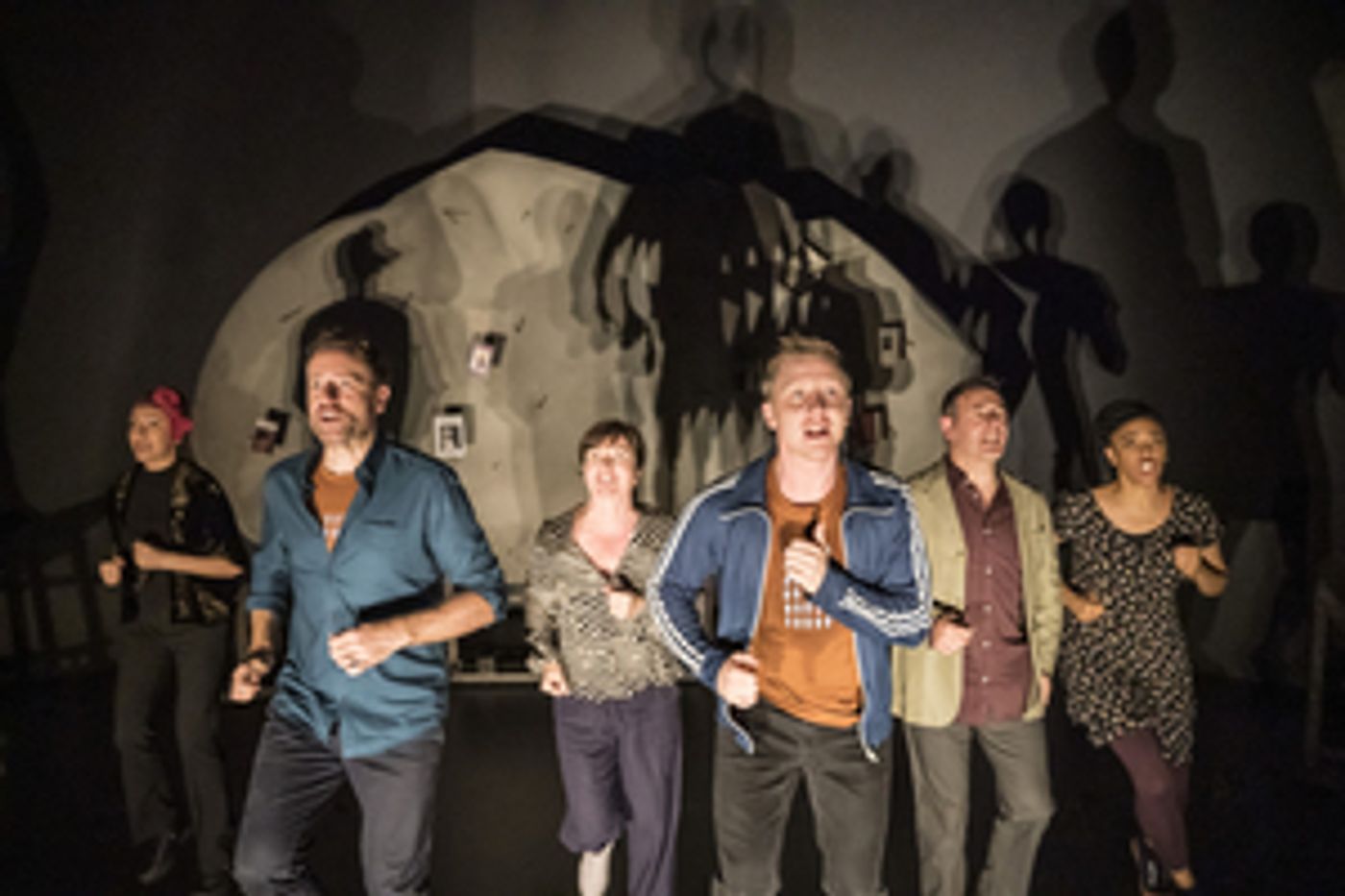Review: REASONS TO STAY ALIVE, Crucible Studio, Sheffield

![]() Reasons to Be Alive, a Sheffield Theatres and English Touring Theatre adaptation of Matt Haig's popular book, is a 75-minute journey inside one man's head as he experiences, and emerges from, a debilitating period of depression and anxiety.
Reasons to Be Alive, a Sheffield Theatres and English Touring Theatre adaptation of Matt Haig's popular book, is a 75-minute journey inside one man's head as he experiences, and emerges from, a debilitating period of depression and anxiety.
Haig's book is not one that you might easily expect to translate to the theatre. It is part memoir, part list, part self-help book. This means that the play, like the source material, does not follow a straightforward linear narrative.
Scenes from Matt's life in his twenties, as he experiences his first crippling bout of depression, are interspersed with a variety of lists and monologues - and there are two Matts, one in his twenties, the other older and about to publish the memoir that will become this play. The show pulls off the balance between the different styles well, in no small part thanks to the moveable set that rotates and shifts at each narrative turn.
The show is directed by Jonathan Watkins, with April De Angelis adapting the book text, remaining markedly faithful to Haig's wording whilst cleverly distributing lines between characters rather than assigning them all to Matt.
Simon Daw's set design offers us three pieces of bleak concrete-style wall that look like a shattered cranium, one of which is studded with oversized nails. These pieces rotate to reveal a complex set of scaffolding on the reverse that characters traverse in different ways, adding a dynamism to what could be a very stark image.
The cast are great - tackling not only the complex emotions at work in the piece, but engaging in a lot of physically demanding work. As younger Matt, Mike Noble puts in a strong performance. His facial expressions are able to convey what words often cannot during moments of great distress. Phil Cheadle as older Matt offers a more mature, sage and contented counterpart to the younger version through most of the show - until the roles become reversed later on, and his younger self advises the older.
All six members of the cast are on stage pretty much the whole time, except for a few costume changes. Janet Etuk offers sterling support as Matt's girlfriend Andrea, Chris Donnelly and Connie Walker as his parents and Dilek Rose in several smaller parts. It might be Matt's story, but the whole cast are given plenty to do.
Much like the book on which it is based, there is a lot of humour here that generally stops the play from becoming too melodramatic, although some may still find it overly sentimental in places. The overall message seems to be 'It can happen to anyone and it can get better' - a noble sentiment to be sure, but somewhat naïve in its simplicity.
Reasons to Stay Alive, in both book and play format, presents a very singular experience of life with mental illness that may or may not resonate with members of the audience who have experienced depression or anxiety themselves.
For example, Matt has the support of his family and girlfriend throughout in terms of emotional support as well as financial and practical help. This may be difficult for some viewers to identify with, particularly if their own experiences have been more isolating. (To his credit, Haig acknowledges this issue in the programme.)
Those expecting an exploration of the causes of mental ill health or some of the wider social issues surrounding it (e.g. inequality, poverty, discrimination) will not find much of that here. And even some elements of Matt's own story are minimised - his unsatisfactory experiences with medication are glossed over, for example, with just a note that medication simply works for others but not him. There's also no mention of whether or not he tried any kind of therapy.
These are mostly issues with the source material, of course - but even outside of the script perhaps there could have been some mention of ways people can access help if they are struggling. For example, I was surprised not to see details of support organisations in the programme or the foyer.
However, this IS a personal story at the heart, and it would not be altogether fair to expect Haig to represent situations he has not been in himself - as it says in both the book and script, there are "seven billion versions of normal" and this is simply his. And in this production, his story is told with real gusto and a lot of heart.
Reasons to Stay Alive is that the Crucible Studio, Sheffield, until 28 September and then tours nationally until 16 November.
Photo by Johan Persson
Reader Reviews
Videos

